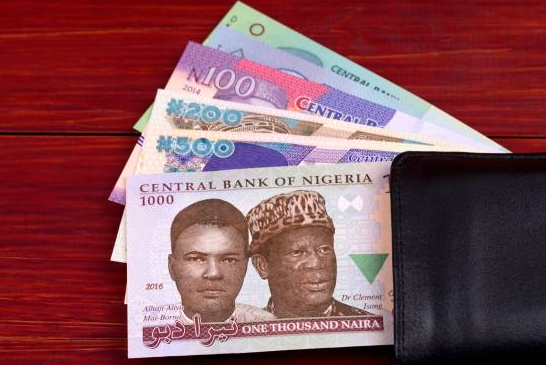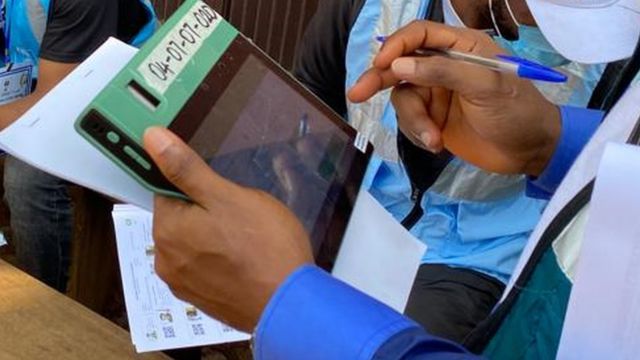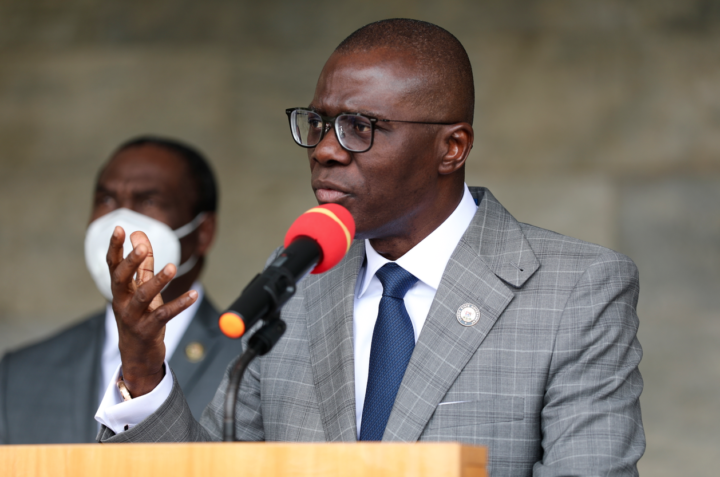Call it a full-circle movement or a 360-degree journey and you won’t be far off the mark. Such has been the story of the naira redesign policy of the Central Bank of Nigeria (CBN).
In October 2022, Godwin Emefiele, CBN governor, announced the apex bank’s plan to redesign and circulate a new series of three banknotes out of the existing eight.
The redesigned N200, N500 and N1000 notes were due for circulation on December 15, 2022. Emefiele said the pre-existing notes would remain legal tender until January 31, 2023.
The CBN governor explained that the decision was reached due to persisting concerns with the management of currency in circulation — particularly those outside the banking system.
Advertisement
Five months later, Nigerians have been directed to go back to using the old notes pari passu the new notes till December 31. Between October 2022 and March 2023, a lot happened.
Here is a timeline of the major events in the five-month period where the naira — Nigeria’s currency — was elusive to Nigerians.
ENTRY OF THE NEW NOTES
October 26: CBN announces the redesign of naira notes, with January 31, 2023 as the deadline for use of old notes.
Advertisement
October 28: Zainab Ahmed, minister of finance, budget and national planning, says the CBN did not consult the ministry on the policy.
October 30: President Muhammadu Buhari says CBN has his backing to redesign the naira notes.
November 10: Buhari says no going back on the redesign of naira notes.
November 17: CBN instructs commercial banks to work on Saturdays to enable customers to return old naira notes.
Advertisement
November 23: Buhari unveils redesigned naira notes.
December 8: Emefiele says banks received new notes on December 7.
December 15: Banks begin dispensing the redesigned naira notes to customers across the country.
December 20: CBN highlights security features of redesigned naira notes.
Advertisement
THE DRAMA CONTINUED IN 2023
January 7: CBN asks banks to stop over-the-counter withdrawal of redesigned naira notes.
January 20: CBN launches cash swap programme in all 774 LGAs.
Advertisement
January 24: Emefiele says no going back on January 31 deadline for old naira notes.
January 29: CBN extends the deadline for the swap of old naira notes to February 10, giving a 7-day extra grace period for direct deposit with CBN.
Advertisement
January 29: Emefiele says N1.9 trillion worth of naira notes recouped with N500 billion more to go.
January 31: Emefiele says CBN, not banks, will continue to collect old naira notes after the deadline.
Advertisement
February 2: CBN orders banks to resume paying new naira notes over the counter.
February 3: Kaduna Kogi, Zamfara states sue FG over naira redesign policy.
February 3: CBN says it has no plan to extend February 10 deadline.
February 3: Buhari asks Nigerians to give him 7 days to resolve the naira notes crisis, and accuses banks of greed.
February 6: FCT high court restrains CBN from extending the deadline on the use of old naira notes.
February 8: Supreme court restrains CBN from enforcing the February 10 deadline following an ex parte application brought by the states.
February 8: Abubakar Malami, the AGF, files a preliminary objection challenging the court’s jurisdiction to entertain the matter.
February 9: CBN blames scarcity of new naira notes on hoarding by citizens.
February 10: Abubakar Malami, the AGF, says FG will obey the supreme court’s February 8 order.
February 11: CBN says it has the capacity to print required new naira notes.
*February 13: Ten days after, Buhari remains silent on how he intends to address the cash scarcity.
February 14: CBN insists on February 10 deadline for old notes validity — despite supreme court ex-parte order.
February 15: Supreme court adjourns case against CBN to February 22, rules that old notes remain legal tender.
February 15: CBN launches portal for collection of old naira notes.
February 16: Buhari addresses Nigerians, and extends the validity of old N200 notes till April 10.
February 21: Three states initiate contempt proceedings against Emefiele, the AGF, and CBN for flouting the supreme court order.
February 22: Supreme court fixes March 3 to rule on a suit challenging the naira redesign policy. Sixteen states join the suit.
March 2: Buhari apologises to Nigerians over the naira redesign policy.
March 3: Supreme court rules held that old N200, N500 and N1000 notes remain legal tender until December 31.
*March 7: Commercial banks resume dispensing old naira notes.
March 11: Ten states file contempt charges against the federal government, CBN over their non-compliance with the supreme court judgement on the naira redesign policy.
March 13: CBN finally speaks on the supreme court order, saying old naira notes remain legal tender till December 31.
VIOLENT PROTESTS AND RIPPLE EFFECTS
While the back and forth on the naira redesign policy and deadlines lasted, violent protests erupted across several parts of the country as the cash scarcity hit Nigerians hard.
The hardship was further worsened by increased fuel prices and queues.
In February, residents of Ibadan, the capital of Oyo state, took to the streets to protest the lingering petrol and cash scarcity.
One person was killed during a face-off between hoodlums and police officers while the unrest in Ibadan lingered while another person was shot in Abeokuta, the Ogun state capital.
An official of the Lagos State University (LASU) slumped and died while waiting in a queue to withdraw money at a bank on the institution’s main campus in Ojo.
On March 11, a radio presenter with Fresh FM in Ibadan slumped and died while trekking to work after a futile effort to withdraw cash.
The Centre for the Promotion of Private Enterprise (CPPE) said on Sunday that the Nigerian economy lost an estimated N20 trillion to the current naira scarcity.
TheCable also documented the potential effects of the naira redesign policy on Nigeria’s economy here.
Editor’s note: The asterisked dates are special reports undertaken by TheCable’s reporters.







